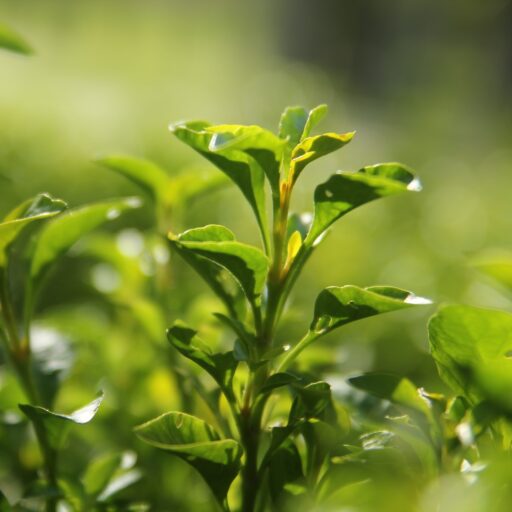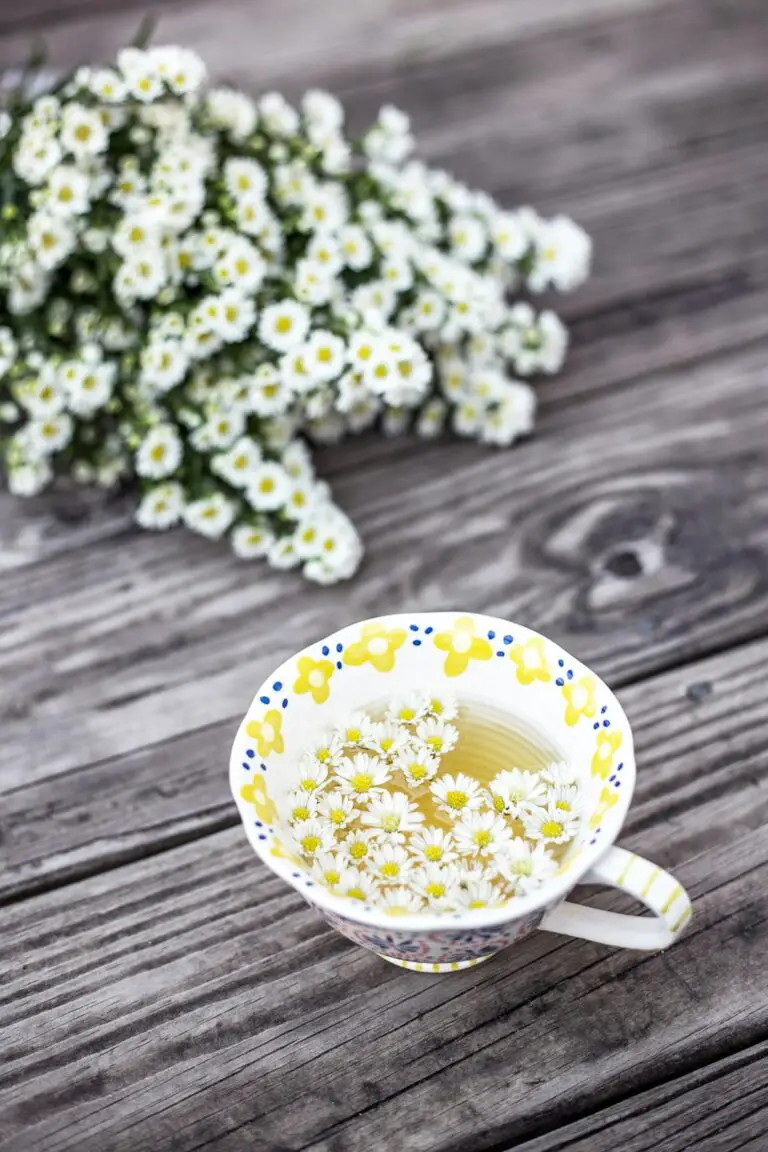Support our educational content for free when you purchase through links on our site. Learn more
Is Camellia sinensis the same as green tea? [2023]
Have you ever wondered if Camellia sinensis is the same as green tea? It’s a common question among tea enthusiasts, and today we’re here to provide you with a comprehensive answer. So grab a cup of your favorite tea and let’s dive in!
Table of Contents
- Quick Answer
- Quick Tips and Facts
- Background
- What is Camellia sinensis?
- What is green tea?
- What is matcha?
- Differences between green tea and matcha
- Health benefits of green tea
- Health benefits of matcha
- Is one better for you?
- FAQ
- Conclusion
- Recommended Links
- Reference Links
Quick Answer
In a nutshell, Camellia sinensis is the plant from which various types of tea, including green tea, are derived. So, while Camellia sinensis is not the same as green tea, it is the source of green tea.
✅ CHECK PRICE on: Green Tea | Matcha
Quick Tips and Facts
- Camellia sinensis is a species of evergreen shrub native to East Asia.
- It is the plant from which all true teas, including green tea, black tea, white tea, oolong tea, and pu-erh tea, are derived.
- Green tea is made from the leaves of Camellia sinensis that have undergone minimal oxidation during processing.
- Matcha is a type of green tea that is ground into a fine powder and consumed whole.
Background
Before we delve into the specifics, let’s provide a bit of background information. Tea, in its various forms, has been enjoyed for centuries and is one of the most widely consumed beverages in the world. The tea plant, scientifically known as Camellia sinensis, is the common thread that ties all true teas together.
What is Camellia sinensis?
Camellia sinensis is a species of evergreen shrub that belongs to the Theaceae family. It is native to East Asia, including countries like China, Japan, and India. The leaves of this plant are used to produce different types of tea.
What is green tea?
Green tea is a type of tea that is made from the leaves of Camellia sinensis. What sets green tea apart from other types of tea is its minimal oxidation during processing. After the leaves are harvested, they are quickly heated to prevent oxidation and maintain their green color. Different processing methods, such as steaming or sun drying, are used to achieve this.
Green tea has a distinct flavor profile, often described as earthy, grassy, or vegetable-like. It is known for its refreshing taste and numerous health benefits.
What is matcha?
Matcha is a type of green tea that is grown and processed in a unique way. Like green tea, it is made from the leaves of Camellia sinensis. However, matcha undergoes a more careful growth and extraction process, resulting in a richer, stronger flavor compared to green tea.
To produce matcha, tea plants are grown in the shade for several weeks before harvest. This slows down their growth and increases the production of chlorophyll and amino acids, giving matcha its vibrant green color and unique flavor profile. After harvest, the leaves are dried, stems and veins are removed, and then ground into a fine, bright green powder.
Matcha has a distinct grassy, earthy flavor with sweet and bitter undertones. It is often used in traditional Japanese tea ceremonies and has gained popularity worldwide for its unique taste and health benefits.
Differences between green tea and matcha
While both green tea and matcha come from the same plant, there are some key differences between the two:
| Green Tea | Matcha |
|---|---|
| Made from the leaves of Camellia sinensis that have undergone minimal oxidation | Made from the entire pulverized tea leaves of Camellia sinensis |
| Brewed as a beverage | Consumed whole as a fine powder |
| Earthy, grassy, or vegetable-like flavor | Grassy, earthy flavor with sweet and bitter undertones |
| Lower caffeine content compared to matcha | Higher caffeine content compared to green tea |
| Available in loose leaf or bagged form | Available as a fine powder |
Health benefits of green tea
Green tea is renowned for its numerous health benefits. Here are some of the potential benefits associated with green tea consumption:
- Antioxidant-rich: Green tea is packed with antioxidants, such as catechins, which help protect the body against free radicals and oxidative stress.
- Boosts metabolism: Some studies suggest that green tea may help increase metabolism and promote weight loss.
- Improves brain function: The caffeine and L-theanine in green tea can enhance brain function, improve focus, and increase mental alertness.
- Supports heart health: Green tea has been linked to a reduced risk of heart disease by improving cholesterol levels and reducing blood pressure.
- May lower the risk of certain cancers: The antioxidants in green tea may help protect against certain types of cancer, such as breast, prostate, and colorectal cancer.
✅ CHECK PRICE on: Green Tea
Health benefits of matcha
Matcha shares many of the health benefits associated with green tea, but due to its unique preparation process, it may have higher levels of certain health-boosting compounds. Here are some potential health benefits of matcha:
- High antioxidant content: Matcha is particularly rich in antioxidants, including catechins, which may have even greater health benefits compared to green tea.
- Enhances relaxation: Matcha contains L-theanine, an amino acid that promotes relaxation and reduces stress.
- Boosts energy and focus: The combination of caffeine and L-theanine in matcha provides a sustained energy boost without the jitters often associated with coffee.
- Supports detoxification: Matcha is believed to support the body’s natural detoxification processes, thanks to its high chlorophyll content.
- May aid in weight loss: Some studies suggest that matcha can increase fat burning and boost metabolism, potentially aiding in weight loss efforts.
✅ CHECK PRICE on: Matcha
Is one better for you?
When it comes to choosing between green tea and matcha, there is no definitive answer as to which one is better for you. Both offer unique flavors and health benefits. The choice ultimately depends on your personal preferences and needs.
If you enjoy a milder, earthy flavor and want to experience the benefits of green tea, opt for traditional green tea. On the other hand, if you prefer a stronger, more concentrated flavor and are looking for a unique tea-drinking experience, give matcha a try.
Remember, both green tea and matcha are excellent choices for incorporating into a healthy lifestyle. Whichever you choose, you’ll be reaping the benefits of Camellia sinensis.
FAQ
Is all green tea Camellia sinensis?
Yes, all true green tea comes from the leaves of the Camellia sinensis plant. However, there are herbal teas and infusions that are often referred to as “green tea” but do not actually contain Camellia sinensis.
Read more about “… Where to Buy Camellia Sinensis Seeds: A Comprehensive Guide”
Is Camellia the same as green tea?
No, Camellia sinensis is the plant from which green tea is derived. Green tea is made from the leaves of Camellia sinensis that have undergone minimal oxidation during processing.
Read more about “… Can Tea Grow in North Carolina?”
What does Camellia sinensis do to your body?
Camellia sinensis, whether consumed as green tea or other types of tea, offers various health benefits. It is rich in antioxidants, which help protect the body against free radicals and oxidative stress. It may also support heart health, brain function, and weight management.
Read more about “… Organic Camellia Sinensis Plants for Sale: A Comprehensive Guide”
What kind of tea is Camellia sinensis?
Camellia sinensis is the plant from which all true teas, including green tea, black tea, white tea, oolong tea, and pu-erh tea, are derived. The specific type of tea depends on the processing methods used after the leaves are harvested.
Conclusion
In conclusion, Camellia sinensis is the plant from which green tea and other true teas are derived. Green tea is made from the leaves of Camellia sinensis that have undergone minimal oxidation during processing, while matcha is a type of green tea that is ground into a fine powder and consumed whole. Both green tea and matcha offer unique flavors and health benefits, so the choice between the two ultimately comes down to personal preference. So go ahead, explore the world of Camellia sinensis and enjoy the wonderful flavors and benefits it has to offer!
Recommended Links
- Green Tea Cultivation
- Herbal Tea Planting
- Tea Plant Varieties
- Soil and Climate for Tea
- Can Tea Grow in North Carolina?




